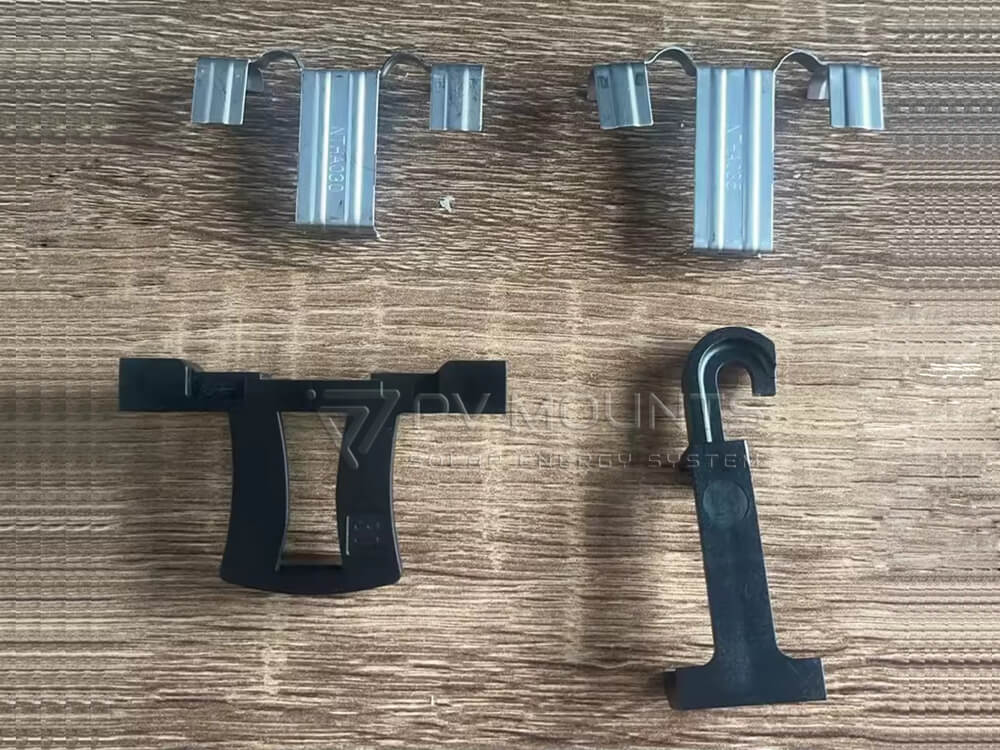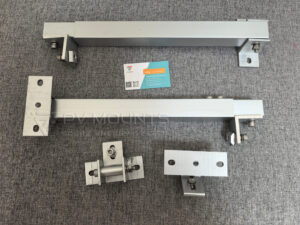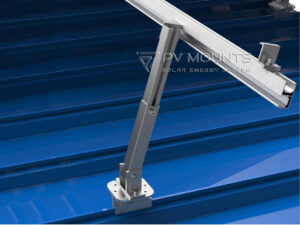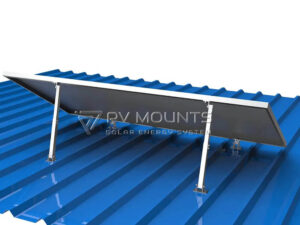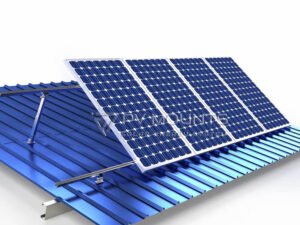Introduction to Solar Panel Water Drain Clips
Water drain clips might be small, but they play a big role in solar energy systems. These tiny accessories are essential in ensuring solar panel longevity and optimal performance. But what exactly are they, and why are they so important?
What Are Water Drain Clips?
Water drain clips are small mechanical components fixed to the lower frame of solar panels. Their purpose is simple yet crucial: to provide a path for rainwater to escape instead of pooling on the panel or mounting structure. Without them, standing water can lead to corrosion, algae growth, and even reduced panel efficiency.
Why Are They Essential in Solar Installations?
In climates with heavy rainfall, humidity, or salt air (such as coastal areas), water retention under or around the solar panels can compromise the integrity of the system. Water drain clips prevent this by ensuring consistent drainage and protecting both the aluminum frames and the underlying roof or ground mount system.
How to Select Water Drain Clip for Solar Panel?abs plastic or steel sus304?
Choosing the right drain clip isn’t just about price. It’s a decision that affects the durability, safety, and performance of your solar system.
Key Decision Factors
- Environment: Are you installing in coastal regions, snowy mountains, or dry deserts?
- Budget: What’s your target budget for accessories vs. total system cost?
- Compatibility: Does the clip fit your solar frame and racking system?
- Installation Method: Will the clip be inserted manually or pre-installed?
- Compatibility with Panel & Mount Structure: ABS clips are generally easier to adapt to various frame types due to their flexibility. However, SUS 304 steel clips are known for their precision fit and tight grip. Always check the panel frame thickness and groove dimensions before purchasing.
1.Material Comparison: ABS Plastic vs SUS 304 Stainless Steel
Let’s dive into the heart of the matter—what makes one material better than the other for water drain clips?
| Feature | ABS Plastic | SUS 304 Stainless Steel |
|---|---|---|
| Material Strength | Moderate | Very High |
| UV Resistance | Good with additives | Excellent (natural property) |
| Corrosion Resistance | Limited (prone to degradation) | Exceptional (especially in coastal areas) |
| Installation Ease | Easy (lightweight, flexible) | Easy |
| Cost | Higher upfront | Lower |
| Aesthetic Longevity | May discolor over time | Maintains finish |
| Sustainability | Harder to recycle | Recyclable and sustainable |
2.Climate & Environmental Considerations
Your site’s environment will greatly influence your decision. Here’s how different climates affect each material:
Effects of Sun, Rain, Snow, Salt, and Chemicals
- ABS Plastic: Can become brittle under long-term UV exposure and struggle in salty or chemical-laden atmospheres.
- Steel SUS304: Naturally resistant to salt spray, chemical corrosion, and heat. It performs well in both coastal and industrial regions.
In tropical climates with intense UV rays, steel is a smarter choice. However, ABS plastic can still perform well in moderate or dry areas.
3. Easy Installation and Labor Requirements
For large solar farms, installation speed matters. Both of them are typically push-fit or snap-on, allowing quick installation. They can cut down installation time.
Cost Analysis and Long-Term Value
Initial Cost, Lifecycle Cost, Maintenance & Replacement Costs
ABS clips are budget-friendly upfront but may need replacement in 5–7 years. It could cost you labor and maintenance later.
SUS 304 steel clips Because of the optimization of stainless steel mold, the price is cheaper than ABS. Meanwhile, it last over 25 years with minimal maintenance. Usually needs zero replacements during the panel’s lifetime.
4.Corrosion Resistance and UV Stability
Corrosive Environments
Stainless steel is the champion here. It’s non-reactive, doesn’t rust, and maintains its form even in marine climates.
UV Degradation of ABS Plastic
Unless treated, ABS plastic will fade and weaken in constant sun exposure. For rooftop solar installations, this can be a major disadvantage.
5.Mechanical Strength and Load Resistance
In areas with strong winds or heavy snowfall, mechanical strength is crucial.
Load-Bearing Capacity
SUS 304 steel drain clips handle mechanical stress far better than ABS plastic. They’re less likely to deform or break under strain.
Stress Tolerance in Windy or Snowy Areas
ABS plastic may crack or bend under cold or windy conditions. In contrast, steel remains intact even under pressure.
6.Safety and Compliance Standards
Fire Safety
Stainless steel is non-combustible, while ABS plastic can melt or ignite under extreme heat.
Compliance Certifications
Make sure the clips meet international certifications such as:
- RoHS (Restriction of Hazardous Substances)
- ISO 9001
- UL or TUV tested materials
These often favor stainless steel components due to their consistent quality and durability.
7.Sustainability and Environmental Impact
Recyclability & Carbon Footprint
Stainless steel is 100% recyclable and leaves a smaller carbon footprint over its lifespan. ABS plastic, while durable, is harder to recycle and often ends up in landfills.
Eco Certifications
If you’re going for a green project, opt for components that support LEED or BREEAM certification. Stainless steel fits the bill perfectly.
Use Cases and Industry Recommendations
Residential vs Commercial Applications
- ABS Plastic: Good for budget residential or temporary setups.
- SUS 304 Steel: Ideal for commercial and utility-scale projects demanding longevity.
EPC Contractor Preferences
Most EPCs lean toward SUS 304 due to its reliability, ease of compliance, and lower maintenance costs.
Common Mistakes When Choosing Water Drain Clips
- Choosing based on price alone
- Ignoring environmental stressors
- Mismatching clips with panel frame types
- Overlooking compliance and safety
- Not verifying supplier credentials
FAQs
What is the main function of a water drain clip for solar panels?
It ensures water doesn’t collect around or under panels, reducing corrosion and damage.
Is ABS plastic suitable for coastal installations?
No, salt air can degrade ABS quickly. Stainless steel is more appropriate.
How long do SUS 304 stainless steel clips last?
Typically, over 25 years with no significant maintenance.
Can I mix ABS and steel clips in one installation?
It’s not recommended due to differing material behaviors and expansion rates.
Do all solar panel brands support drain clips?
Most do, but always confirm frame compatibility before ordering.
Are there UV-resistant ABS plastic options available?
Yes, but they still won’t match stainless steel in longevity or strength.
Conclusion
When deciding how to select water drain clip for solar panel? ABS plastic or steel sus304?It all comes down to your priorities and preferences. If you’re working on short-term project in a mild environment, ABS plastic can suffice. However, if you’re looking for long-term value, corrosion resistance, strength, and sustainability—SUS 304 stainless steel is the clear winner
Choose wisely, because the right clip protects not just your panels, but your investment.
According to our experience, Most of our clients will select SUS 304 steel water drain clip for solar panels.
📩 Ready to upgrade your mounting solution?
Contact PV Mounts today for custom design consultations, quick prototyping, and global delivery support. Let’s power your solar project — the right way, from the roof up.
Whether you’re exploring your first order or scaling a mature brand, our team can help you:
- Optimize your solar mounting system and accessories supply chain
- Develop unique solar mounting system and accessories
- Manage low-risk MOQs with full OEM/ODM support
- Access sample kits with real-time logistics
📩 Email to info@pv-mounts.com or message on WhatsApp: +86-178 5013 2473
📦 Ask about our latest solar tile roof hook catalogue and free sample
Inbound Links:
- ABS plastic water drain clip for solar panel installation
- Steel SUS304 water drain clip for solar panel installation


